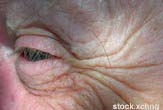Researchers Create Dementia 'Risk Score'

LONDON (AP) -- Researchers have for the first time developed a "risk score'' in an attempt to predict future cases of dementia. In a study published Thursday in the publication Lancet Neurology, researchers identified several key factors that are believed to determine dementia in later life.
"This has been done for other diseases like diabetes and cardio-vascular diseases, but we've never before had a tool like this for estimating the risk of dementia,'' said Dr. Miia Kivipelto, an associate professor at the Aging Research Centre in Stockholm, Sweden, and the study's lead author.
The study looked at 1,409 middle-aged people in Finland from 1972 to 1987, who were then re-examined 20 years later for signs of dementia.
While cautioning that the results still need to be validated in further studies in different populations, Kivipelto says that their risk score predicted dementia occurrence with an approximately 70 percent accuracy rate.
The main risk factors identified by Kivipelto and colleagues virtually mirror those already known for cardio-vascular disease: obesity, hypertension and high cholesterol levels. Having any one of these risk factors doubles a person's chance of developing dementia--and having all three increases their chances by six times, said Kivipelto.
"We have known for years that trying to control obesity, blood pressure and cholesterol can prevent heart disease,'' said Kivipelto, "but now it's not only the heart you can save, but also the brain.''
Unfortunately, there is no effective treatment for dementia, and mental health experts admit that the disease may not be entirely preventable. "Even if you remove all of the risk factors, and control your blood pressure and cholesterol, and are not obese, there is no guarantee that you will not develop dementia,'' said Dr Jose Bertolote, Coordinator of Mental and Brain Disorders at the World Health Organization.
Sign up for the Live Science daily newsletter now
Get the world’s most fascinating discoveries delivered straight to your inbox.
Factors such as genetics and age, known to play a role in determining mental illness, simply cannot be modified. In addition, other risk factors such as alcohol intake, diet, and smoking, were not considered in the study.
Still, identifying at least some of the potential warning signs of dementia will be an important tool in attempting to prevent mental illness. "This is the first time that the synergistic effect of all of these risk factors has been demonstrated,'' said Bertolote, who called the study a "landmark paper.''
Controlling these risk factors will hopefully translate into decreasing numbers of dementia cases, thus decreasing the burden on health care systems worldwide. "If we can just delay the onset of dementia, that will have a major impact on public health,'' said Kivipelto.
Experts envision the risk predictor being used for physicians to warn their patients about the possibility of dementia. "With relatively simple measurements, we hope to provide a quantitative estimate that tells people what their risk of developing dementia is,'' said Dr Jakko Tuomilehto, a public health professor at the University of Helsinki, and one of the study's contributing authors.
The study also raises the possibility of identifying risk factors for dementia decades before its actual onset. "There is some evidence that if certain things are identified and treated in middle age, then the prospect of avoiding dementia increases,'' said Dr. Alistair Burns, professor of Old Age psychiatry at the University of Manchester.
"Dementia affects predominantly older people, and if we are to have strategies to prevent dementia, there's no point starting with people in their 70s and 80s,'' said Burns.
At the very least, the study suggests that when it comes to mental health, prevention is possible. "Opinions about dementia in the past have tended to be quite fatalistic,'' said Kivipelto, "this study shows that there is something you can do: the key risk factors are all modifiable lifestyle changes.''
? Alzheimer's Vaccine Shows Promise









